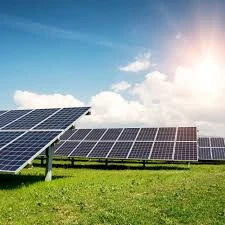Innovative Solar-Powered Air Conditioning Solutions for Sustainable Climate Control
Solar Air Conditioning Systems Harnessing the Sun for Efficient Cooling
As the global pursuit for sustainable living intensifies, innovative technologies continue to emerge, promising to enhance energy efficiency and reduce environmental impact. Among these advancements, solar air conditioning systems stand out as an eco-friendly alternative to conventional cooling methods. These systems utilize solar energy to provide comfortable indoor climates while significantly lowering energy costs and contributing to a greener planet.
Understanding Solar Air Conditioning
Solar air conditioning systems primarily operate by converting solar energy into thermal energy, which is then used to cool indoor spaces. There are various types of solar air conditioning technologies, but two predominant methods are solar thermal and photovoltaic systems.
1. Solar Thermal Air Conditioning This method utilizes solar collectors to absorb sunlight, converting it into heat. This heat is then used in a refrigeration process, typically involving absorption chillers. These chillers utilize a refrigerant, such as lithium bromide, and water, making the cooling process efficient and less dependent on electricity.
2. Photovoltaic Air Conditioning In this method, solar panels convert sunlight directly into electricity, which powers conventional air conditioning systems. This approach not only allows for air conditioning using renewable energy but also ties into the power grid, enabling users to sell excess energy back to the grid, further offsetting costs.
Benefits of Solar Air Conditioning
The transition to solar air conditioning systems presents a multitude of benefits, both economically and environmentally.
1. Reduced Energy Costs By harnessing solar energy, users can significantly lower their electricity bills. The reduction in reliance on grid power—especially during peak hours—can lead to substantial savings.
2. Environmental Impact Solar air conditioning systems help reduce greenhouse gas emissions associated with traditional air conditioning methods. As they utilize renewable energy, they contribute to a decrease in fossil fuel consumption, aiding in the fight against climate change.
3. Energy Independence By generating their own electricity or thermal energy from sunlight, homeowners and businesses can reduce their dependence on traditional power sources, which is especially beneficial in regions prone to energy shortages or price volatility.
solar air conditioning system

4. Enhanced Comfort Modern solar air conditioning systems are designed with smart technologies that allow for efficient temperature control. Many systems can be integrated with smart home technologies, providing users with the ability to monitor and adjust their cooling needs remotely.
5. Incentives and Rebates Many governments and local authorities offer incentives, rebates, and tax credits for the installation of solar energy systems. These financial benefits can further offset the initial installation costs of solar air conditioning systems.
Challenges and Considerations
Despite their numerous advantages, the adoption of solar air conditioning systems does face some challenges.
1. Initial Costs The upfront cost of purchasing and installing solar panels and air conditioning units can be high. While government incentives may reduce this burden, it is crucial for potential users to evaluate the return on investment over time.
2. Energy Storage Solar energy production is dependent on sunny weather conditions. Consequently, integrating a battery storage system is often necessary to ensure consistent cooling during periods of low sunlight or at night. This adds an additional layer of complexity and cost to the installation.
3. Space Requirements Solar panels need adequate space for installation, and not every property may be suitable for a solar air conditioning system. Home and business owners must consider their property’s orientation, shading, and available roof space carefully.
The Future of Solar Air Conditioning
As technology advances, the efficiency and affordability of solar air conditioning systems are expected to improve significantly. Research and innovation in energy storage solutions, solar panel efficiency, and smart HVAC technologies will play a crucial role in mainstreaming these systems.
In conclusion, solar air conditioning systems represent a transformative approach to cooling spaces while promoting sustainability and energy efficiency. With the pressing need to address climate change, these systems will likely gain traction as both homeowners and businesses seek more sustainable and cost-effective ways to maintain comfortable environments. As the shift towards renewable energy continues, solar air conditioning may very well become a staple solution in the quest for a greener future.
-
Understanding the Advantages of Solar String Inverters for Your Energy SystemNewsApr.29,2025
-
Choosing the Right PV Inverter: A Comprehensive GuideNewsApr.29,2025
-
The Future of Solar Power: Exploring Bifacial Solar PanelsNewsApr.29,2025
-
The Complete Guide to Solar Panels: Efficiency, Cost, And InstallationNewsApr.29,2025
-
The Best Options for Efficiency and Cost-EffectivenessNewsApr.29,2025
-
Harnessing the Power of Off-Grid Solar Inverters for Energy IndependenceNewsApr.29,2025







